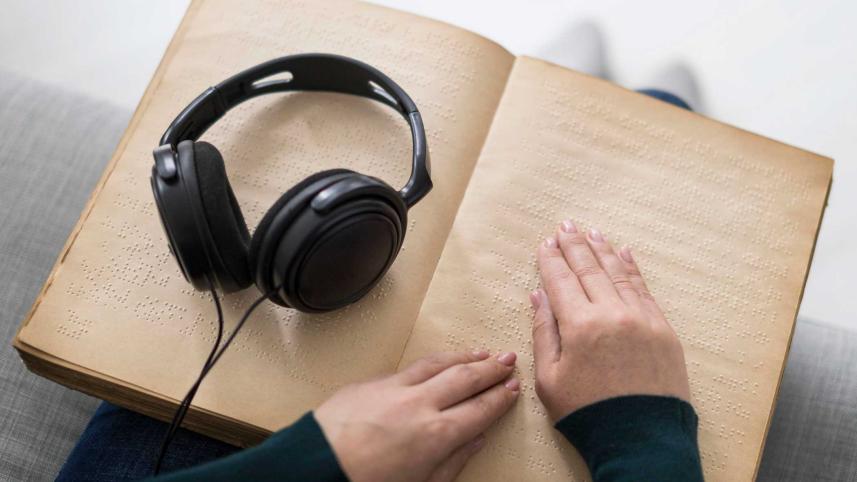Make our dark world bright

I became blind when I was eight years old. Until that time, my life was full of joy and happiness; like other children my age, I played with friends, made new discoveries daily, and thoroughly enjoyed the adventures and excitement of a dawning life. After my blindness, darkness crept into my life. Due not just to my blindness, but to the blindness of others about the needs of those of us with disabilities, I could not go to the playground or read my favourite colourful books. Having a visual disability is always difficult; being blind in Bangladesh is even worse. Blind people are deprived of many basic rights such as proper healthcare, recreation and the ability to earn a living. Most of the people with visual impairment belong to poor families, who are hardly able to overcome these obstacles.
Off already to a bad start in life, my educational journey was even more difficult. A little-known deprivation of people who are visually impaired is inaccessible books. When I was in secondary school, I constantly faced book scarcity because my school, run by an NGO, needed to take special permission to convert textbooks into braille. The simple solution was to deny me books. My book scarcity degenerated into book famine when I was at the college and university levels.
And yet, I was actually lucky compared to others. My family and friends helped me to make accessible books. Sometimes, my mother or friends read the books out loud and I recorded them. This way, I completed graduation. My educational journey ended about a decade ago, but I see very little improvement in the availability of accessible books today. The Bangladesh government is providing books at the primary and secondary levels, while college and university students still struggle to obtain accessible books. They still must rely upon the voice recorder and class lectures, unable to pore over textbooks when they need to.
Due to the improvement of web accessibility, some countries are providing fiction and nonfiction books—braille, large print, or audio books—for people with visual impairment. For example, the US Department of Education supports a special online library called Bookshare for people with visual impairment. Unfortunately, there are very few Bangla books, and Bangladeshi visually-impaired people cannot access many titles.
At this point, you may be thinking that the reason that visually-impaired people cannot get books in a usable format is that accessible books are very expensive or that sophisticated machines are needed to make these books. In reality, the problem is not fiscal, but legal. A simple law could solve all these problems. Concerned about book scarcity for the visually impaired, the World Intellectual Property Organization (WIPO) promulgated the Marrakesh Treaty in 2013. The aim of the treaty is to ensure accessible books for people who cannot read regular printed books. According to the copyrights act, an organisation or publisher needs to take permission to convert printed books into braille, large print, or audio format. The Marrakesh Treaty gives the freedom to a publisher or any third party to make accessible books without prior permission from the author or publisher of a book. To date, 102 countries have ratified the treaty, including the US, Canada, and all the European countries. Even Afghanistan has ratified the treaty, but Bangladesh has not yet signed it.
Many countries have successfully implemented the treaty; there are no reports of copyright abuse. The treaty not only serves a humanitarian purpose, but also conveys economic benefits. Over the last several years, Disabled People's Organisations have been printing braille books for the Bangladesh textbook authority; many visually-impaired people are working as proofreaders, binders or braille machine operators. Greater availability of accessible books would translate into more jobs for those in greatest need.
A blind person cannot see sunshine, blue skies or the ocean. But a blind person could broaden their horizons and escape to faraway lands by reading a novel. They could find inspiration by reading a memoir or gain useful knowledge for life. A signature and an affirmation at parliament could make our dark world bright.
Talukder Rifat Pasha is assistant policy officer at the Institute of Wellbeing, Bangladesh.



 For all latest news, follow The Daily Star's Google News channel.
For all latest news, follow The Daily Star's Google News channel.
Comments